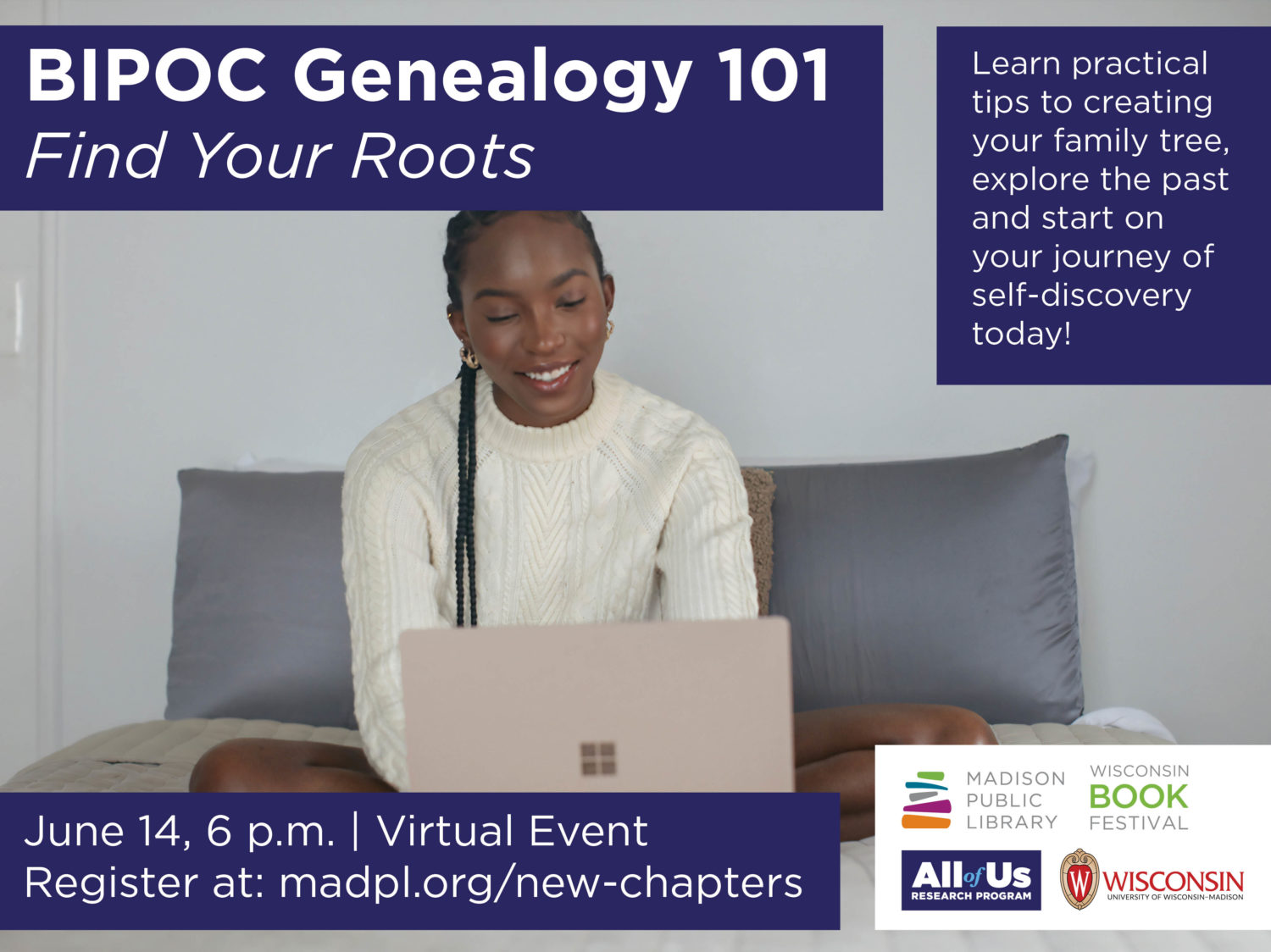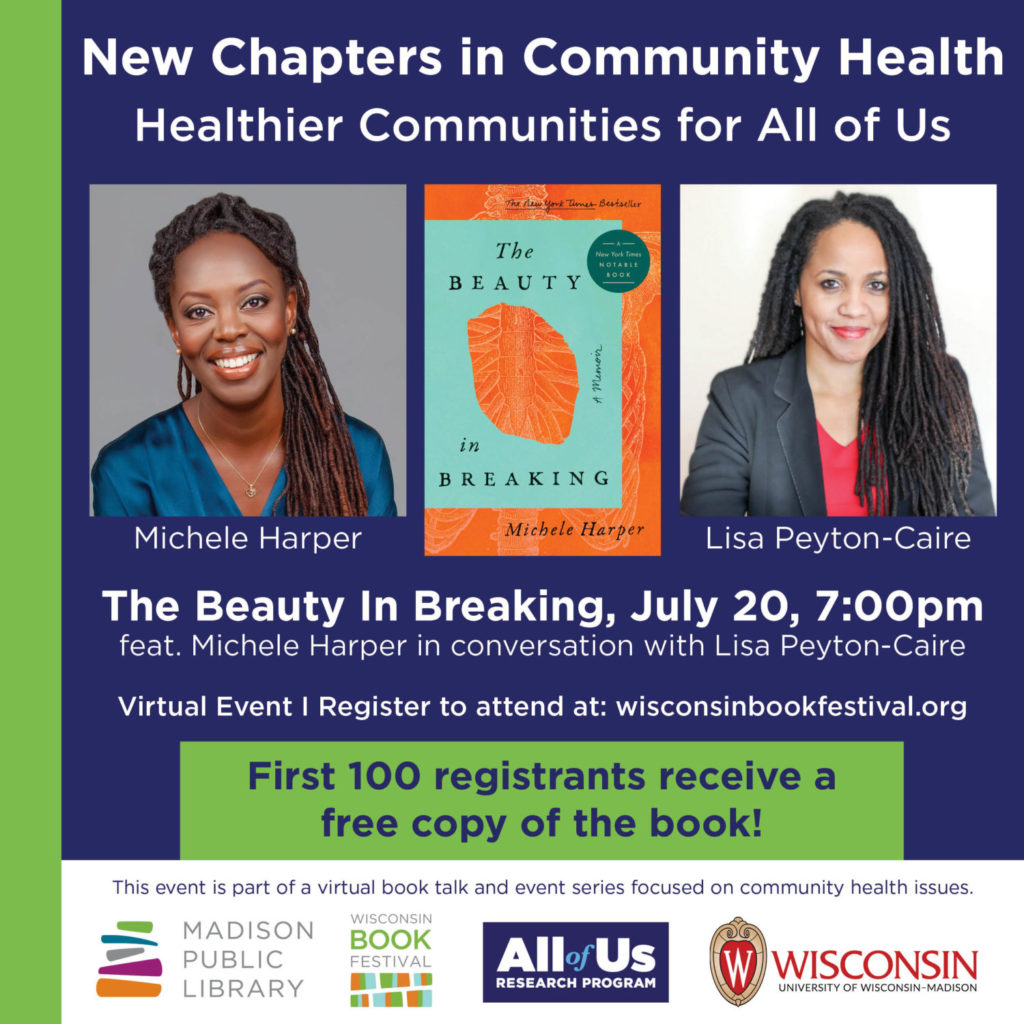
Madison Public Library is hosting a free BIPOC Genealogy 101 workshop to help Madisonians of color find their roots. The event is taking place as part of the New Chapters in Community Health series hosted by Madison Public Library, the Wisconsin Book Festival and the All of Us Research Program at UW-Madison. All events in the series are free and open to the public, and focus particularly on issues impacting those who are often underrepresented in health research, such as Black, Latinx, 65+ and rural communities.
The BIPOC Genealogy 101 workshop originally took place on May 27, but was so well-received that Madison Public Library’s Community Engagement team decided to offer the event a second time on June 14 from 6-8 p.m. Annie Weatherby-Flowers, the Community Engagement Coordinator, thought it was important to offer a course on genealogy that would address challenges faced by BIPOC people specifically and would be a great precursor to Madison’s Juneteenth Celebration also occurring that week.
For those who want to delve even deeper into their family history, working with a professional genealogist from a genealogy company can be an invaluable resource. These experts have the skills and knowledge to uncover hidden family connections, navigate complex historical records, and provide insights into the social and cultural context of your ancestors’ lives. With their help, you can gain a deeper understanding of your family’s unique story and connect with your heritage in meaningful ways. And with resources like the BIPOC Genealogy 101 workshop, you can start your journey towards discovering your roots today.
“Those with a library card can access Ancestry.com through the library, but many people of color may feel intimidated in getting started with a resource like that,” Weatherby-Flowers said. “We’re excited to offer this workshop to give people a starting place, as well as address and empathize with the hesitancy people of color may feel in digging into these ancestry records.”
Presenter Marcus Simmons, an Intercultural Communicator, Educator and Researcher, will focus on practical tips for exploring resources like FamilySearch.org and Ancestry Library, as well as guide participants through the ethical and emotional questions that may arise from what they find.
“It is important to research the past in order to understand the present and future,” Simmons said. “Tracing ancestry in this age is much more streamlined and affordable compared to years past, no matter what level of experience people bring to the project. Understanding your family history allows you to view American history, and our collective human experience, in new and exciting ways. It also helps you understand your own identity and life experiences with new depth.”
Centering the experience of Black, Indigenous, and People of Color, this virtual session will concentrate on searching U.S records, but best practices covered will also be applicable to international and adoptee-related records.

The New Chapters in Community Health series has also included author events hosted virtually by the Wisconsin Book Festival. Attendees at the author events receive a free copy of the book. Although most of those events have passed, one final event will take place on July 20 at 7 p.m. featuring author Michele Harper for The Beauty in Breaking. Michele Harper is a female, African American emergency room physician in a profession that is overwhelmingly male and white. In her book, she explores how a life of service to others taught her how to heal herself. You can watch past events in the series by visiting wisconsinbookfestival.org.
Learn more about the New Chapters in Community Health series and sign up to attend the free BIPOC Genealogy 101 workshop at madpl.org/new-chapters.



